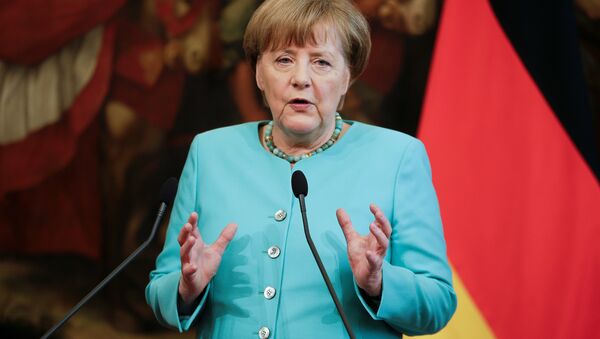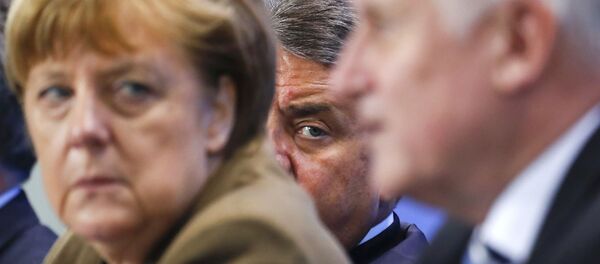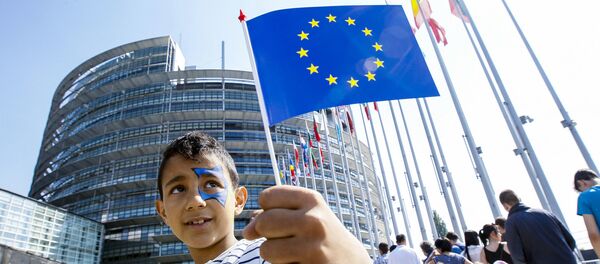However, the rise of AfD — caused by heavy criticism of Merkel's handling of the Eurozone and migrant crises as well as rising fear of Islam — has caused her ratings to tumble and CSU leader Horst Seehofer, has said he will not rule out his party standing against hers (CDU) in the 2017 election.
Merkel has been heavily criticized over her handling of the crisis in the Eurozone, calling for austerity measures across the zone as a way out of the crisis. The AfD began its attack on her leadership over the issue, calling for her to back a shift from austerity to focus more on economic growth, garnering support from many Germans tired of the effects of tough austerity in the Eurozone.
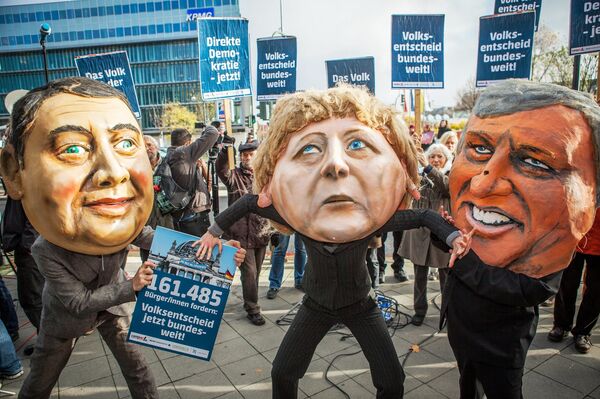
Then came opposition to her policy on immigration — and her suggestion that Germany's door was open to refugees, precipitating the biggest mass movement of people since the end of the war. AfD grasped hold of the issue amid rising calls for a cap on the number of refugees, as local authorities across German struggled to find the resources to deal with asylum seekers.
Seehofer himself launched a series of withering attacks on Merkel — particularly at his CSU party's 2015 annual conference, when he ripped at her in a 13-minute tirade. Bavaria — bordering Austria and the Czech Republic — bore the brunt of the migrant flows from the West Balkan route. Merkel has still refused to put a cap on the number of asylum seekers Germany will take.
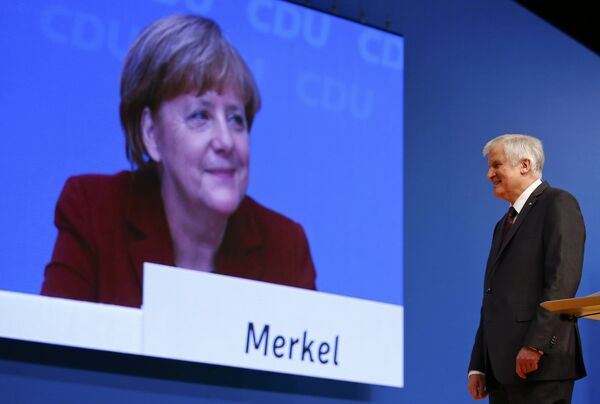
Her unpopularity abroad has begun to diminish her reputation at home. She was the main broker behind the deal to pay Turkey US$6.84 billion over two years to prevent further migrant flows out of his country and accept back "irregular migrants" from Greece, in return — on a one-for-one basis — for Syrian refugees from turkey relocating to EU member states. The deal has drawn severe criticism from human rights groups, who say Turkey has a poor reputation on human rights and the treatment of refugees.
Part of the deal was for largely-Muslim Turkey to win visa-free access to the Schengen zone and acceleration of its membership of the EU, which has drawn criticism and led to a rise in Islamophobia — particularly in the light of the terror attacks in Paris.
That, in turn may yet lead to an increase in the flow of migrants out of Turkey, plunging the crisis into new depths.
With AfD benefitting in the polls amid growing criticism of Merkel's leadership, it is no surprise that Seehofer is distancing his party from hers, but the threat of the CSU standing against her in 2017 marks a new low — not only in her leadership, but in the history of the Union parties.

